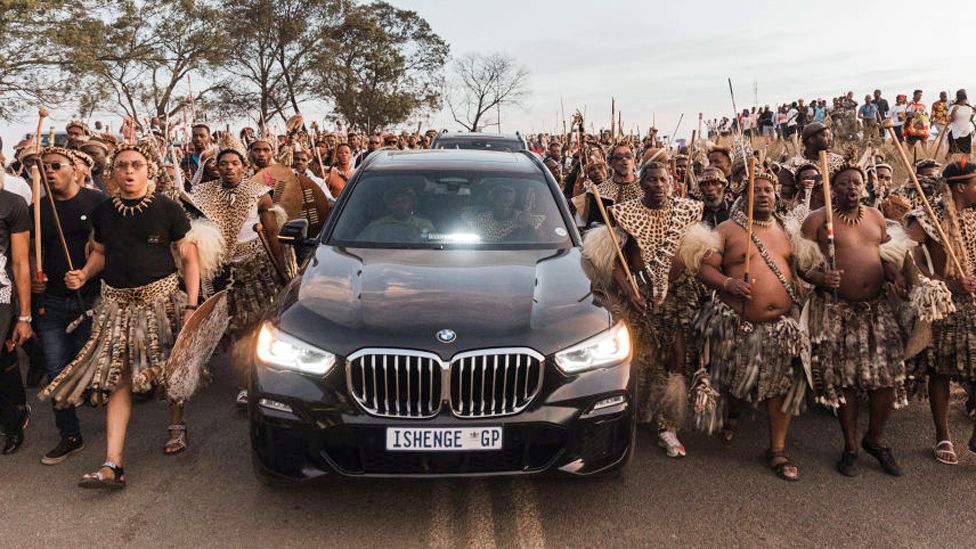-

-
-
Loading

Loading

Mourners have gathered in the town of Ulundi to attend the funeral of veteran South African politician and Zulu chief Mangosuthu Buthelezi. He is being honored with a state funeral for his contribution to the fight against white-minority rule. As a mark of respect, the national power company has agreed to exempt Ulundi from national power cuts during the events. However, his passing at the age of 95 has sparked a debate about his legacy. Buthelezi was born into the Zulu royal family and served as their traditional prime minister until his death. However, it was his role in politics that polarized opinions. He founded the Zulu nationalist Inkatha Freedom Party (IFP) in 1975 after becoming disillusioned with the African National Congress (ANC) during apartheid. He disagreed with the ANC's stance on armed action and sanctions, arguing that they harmed black South Africans. Supporters of Buthelezi believe that he deserves recognition and praise for his contributions, viewing him as a man of peace. Prof Kealeboga Maphunye of the University of South Africa acknowledges Buthelezi's role in preserving the dignity of black people, particularly Zulus, during apartheid. However, his involvement in the violence that occurred during the transition to democracy in the early 1990s has drawn criticism. An estimated 20,000 people died in clashes between the ANC and IFP during that period. Critics argue that Buthelezi's supporters were involved in acts that undermined his legacy. The editor-in-chief of City Press newspaper, Mondli Makhanya, referred to him as a "murderous apartheid collaborator" who was behind hit squads. Makhanya also criticized the positive tributes as an attempt to rewrite history. Thokoza township in Johannesburg witnessed political violence aimed at derailing the path to democratic elections in 1994. A monument now stands there to commemorate the 600 people who lost their lives in the clashes. People gathered at the memorial on Thursday, ensuring their loved ones who died would not be forgotten. Some called on Buthelezi to apologize for the violence that occurred but claimed he denied involvement. The IFP rejects these allegations and denies that Buthelezi or the party were responsible for planning the violence. After Nelson Mandela won the first democratic elections, he and Buthelezi reconciled, and Buthelezi went on to serve as the Minister of Home Affairs in the ANC government. The funeral events started with a memorial service organized by the IFP, attended by dignitaries and politicians from all parties. However, accusations have emerged that some are using the commemorations for political gains ahead of next year's elections. The Economic Freedom Fighters (EFF), the country's second-largest opposition party, has been particularly criticized for politicizing the events. For the IFP, the funeral serves as an opportunity for garnering support, while other parties seek to woo a potential coalition partner in KwaZulu-Natal province. Buthelezi retired from active politics five years ago but recently received praise for overseeing the peaceful installation of the newly crowned Zulu monarch. Despite reports of disagreements between Buthelezi and the king, particularly regarding the management of the Ingonyama Trust, Buthelezi's nearly 70 years of service are seen by historian Mphumeleli Ngidi as a testament to his dedication to preserving Zulu customs and rituals during a critical period in South Africa's history, ensuring his revered status persists.